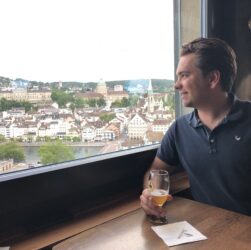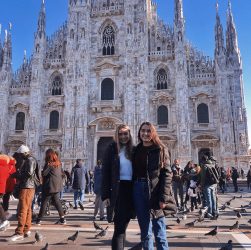Wouter Bezuidenhout MCom in Economics Semester Exchange in the First Semester, 2022 at the University of Zurich Pre-departure: The …


Wouter Bezuidenhout MCom in Economics Semester Exchange in the First Semester, 2022 at the University of Zurich Pre-departure: The …

Pre-departure At first, I felt overwhelmed by what seemed to be a lot of admin from Stellenbosch University’s side. Little …

Pre-departure: Here you should focus on your preparations for your trip abroad. It should include information about the visa application, …